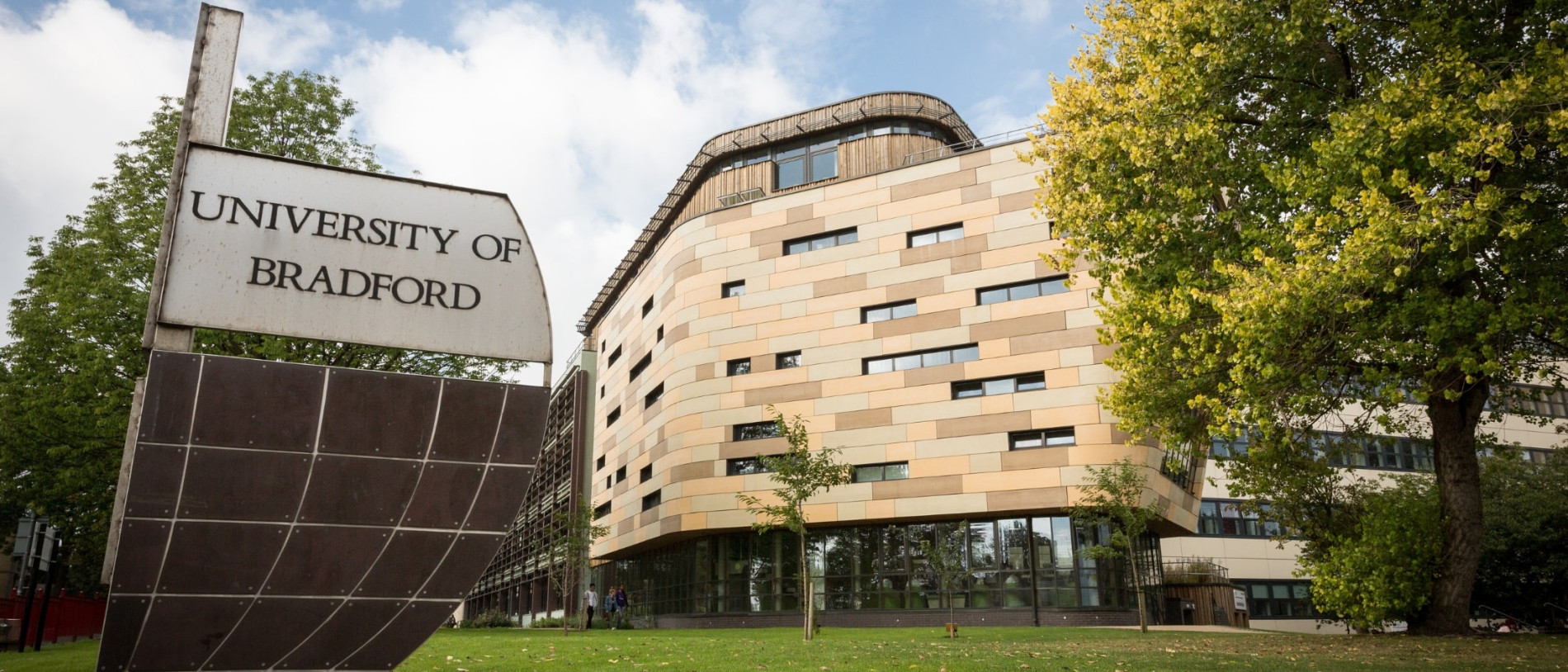

University of Bradford
Biomedical Science
Study detals
: Bachelor's degree : BSc (Hons) Biomedical Science : Full time : 36 MonthRequirements
Entry requirements
You should be aware that meeting the grade requirements specified does not necessarily guarantee admission as there may be additional requirements you need to satisfy.
Secondary School Leaving Certificate
| 136+ UCAS tariff points | 120 - 135 UCAS tariff points | 96 - 119 UCAS tariff points |
|---|
Foundation Programme required
English language
The standard University requirement is 6.0* with no sub-test less than 5.5 (or equivalent) on IELTS, or on the university's own entry test BASALT. Conditional offers to international students will be made on this basis.
IELTS - at least 6.0*, with at least 5.5 in each of the four sub-tests (speaking, listening, reading, writing).
TOEFL - at least 80*, and sub-tests not less than 18 in Reading, 17 in Writing, 17 in Listening and 20 in Speaking if you require a Student Visa.
Other qualifications which may be accepted:
There are other English language qualifications which may be accepted. For example, the University of Bradford also recognises:
- Cambridge Advanced Certificate - grade C or above
- Cambridge Proficiency Certificate - grade C or above
Please note that we DO NOT accept the TOEIC test.
Speciality
Pathways Available: International Foundation Year | International Year Zero
Sandwich course fees - charged during the placement year away from the University of Bradford for students on thick sandwich courses, or during the year in which the second placement falls for students on thin sandwich courses. Students charged at 10% of the equivalent full-time fee.
If a placement year is to be undertaken abroad and supported by University funding through the University’s exchange programmes, fees will increase to 15% of standard fees to cover additional support, advice and administration costs.
As part of this course you will be required to purchase a lab coat worth £10.
Additional information
Degree Overview
Biomedical scientists were one of the key workers working tirelessly since the pandemic began to develop diagnostic tests, run COVID testing laboratories, develop vaccines and support doctors in the urgent research into treatment and prevention strategies for the virus. It is a career at the cutting-edge of medical research.
The studies of Biomedical Science is the in-depth study of human biology in both normal and disease states. This degree programme provides you with detailed understanding of the causes of human disease, how these produce symptoms and the effects of disease on the structure and function of human cells, tissues, and the whole organism. Through this course you will learn both current techniques used in the study of human diseases in the NHS, and innovative technologies under development for experimental treatments.
Recent investment in the Digital Health Zone allows students to access the latest techniques in digital anatomy and pathology, including carrying out digital dissection.